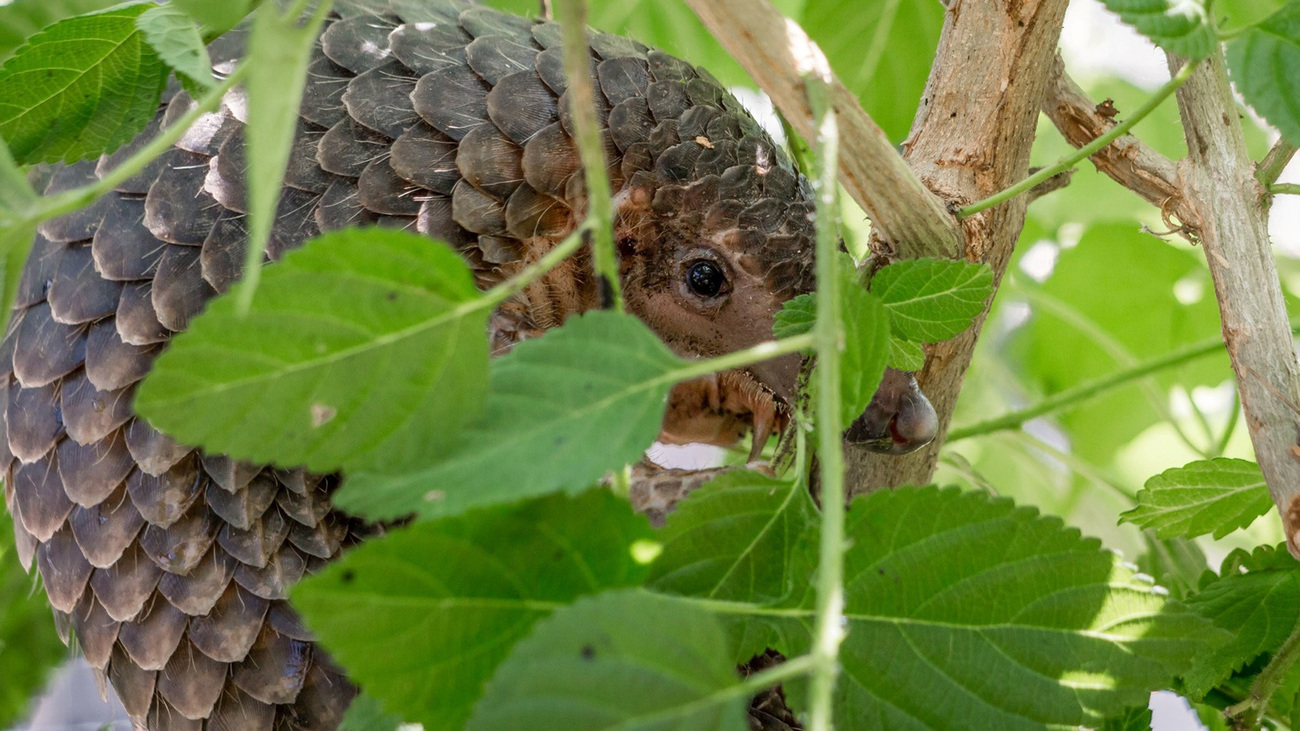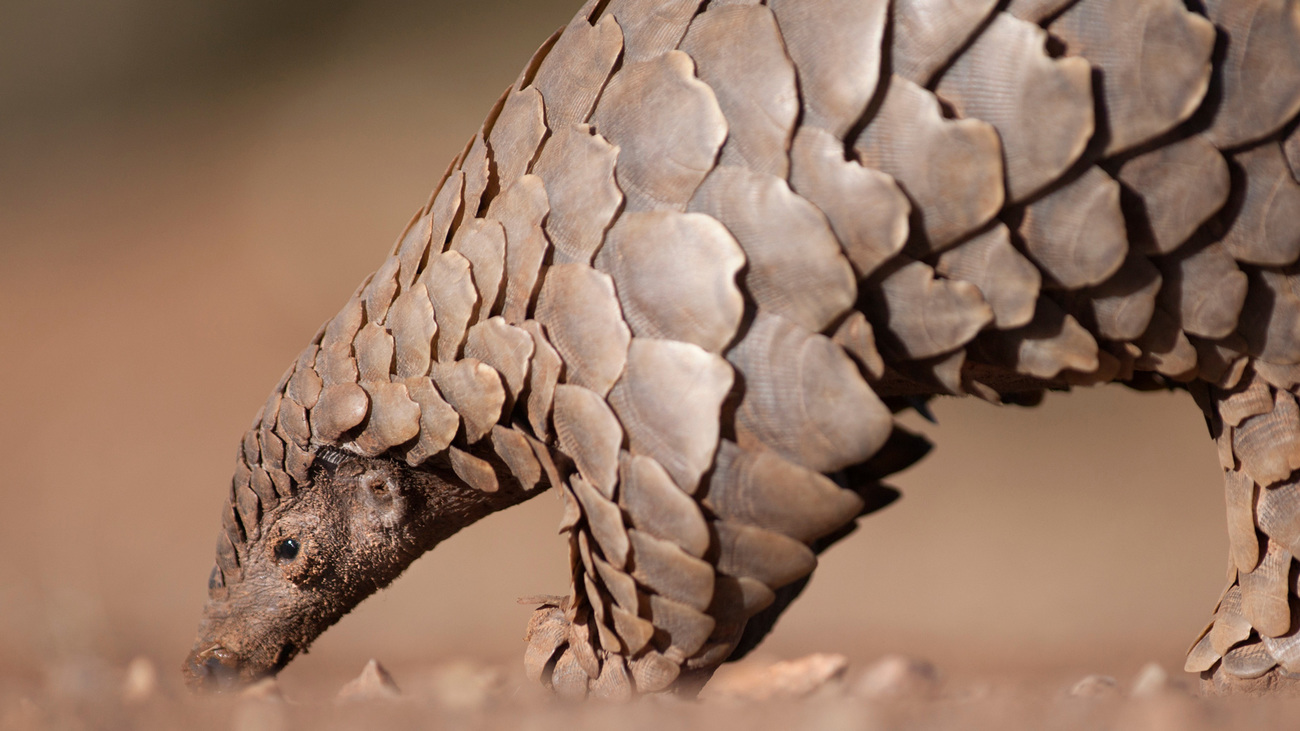CARE – Brazil, Guyana, Congo, and Uganda
Empowering frontline officers to rescue animals from wildlife traffickingour mission to end the plight of pangolins
our mission to end the plight of pangolins

When IFAW’s wildlife rescue program manager Loïs Lelanchon recently returned from hosting a training session, airport security in Africa stopped him after an X-ray machine revealed plastic reptiles in his luggage that he’d used for demonstrations. Officers doing their due diligence thought they were live or dead animals, since frequently, they are—especially if they’re pangolins, the most trafficked mammal in the world.
Live animals rescued from trafficking don’t get as much attention as wildlife products, and IFAW realizes that live seizures and confiscations are challenging and need corrective action. Our goal is to rescue animals from the illegal wildlife trade and prosecute trafficking crimes in a way that prioritizes humane outcomes for wildlife. That’s the purpose of our Confiscated Animals – Rescue and Enforcement (CARE) project supported by the United States Department of State.
In support of that mission, Lelanchon leads the organization’s Live Animals Seized in Trade (LAST) initiative. He interfaces with law enforcement to ensure its members understand what to do, and how to do it correctly and safely, when they discover animals such as vulnerable-to-critically-endangered pangolins destined for wildlife trafficking. They need to care properly for seized animals that can experience extreme stress.
“We assist them in learning how to handle the animals—when they should and shouldn’t—and what to do when they open the consignment, how to identify the species, including how to recognize venomous or very dangerous animals, and how to preserve evidence integrity so a case can be properly built around that evidence,” he says.
“Our main focus is ensuring the animals survive, knowing that in many countries, law enforcement officers don’t even have a physical space to put the animals, for example, at an airport,” Lelanchon says.
To that end, IFAW provides equipment with its guidance and training, so animals can be safely kept for up to 24 hours, he says, until an approved rescue or zoo can pick them up while the legal process continues.
IFAW maintains global projects in selected countries in Asia, Africa, and South America. “We have plans for and are discussing expansion of our efforts in all those areas,” Lelanchon says.
pangolins prized for scales and meat
Both Lelanchon and Lionel Hachemin, wildlife crime program manager, are immersed in IFAW’s mission of conservation and rescue of pangolins and other species. They recently collaborated on an undercover investigation of cybercrime that involved three trafficked Sunda pangolins from Indonesia to potentially India.
Gentle, primarily nocturnal pangolins are natural, toothless insect eaters that survive in diverse habitats. They have a difficult time, Lelanchon says, partly due to negative publicity during the pandemic when they were initially thought to be carriers of coronavirus that contributed to global spread.

All eight pangolin species are killed for their scales, which completely cover them. Scales are composed of the protein keratin that’s found in hair, skin, and nails. When a pangolin is afraid, it rolls into a ball of nearly impenetrable armor. Sadly, the scales are still used in traditional and folk medicine, while efficacy for treating anything successfully has not been scientifically proven. Their meat is also considered a delicacy among some cultures that view it as a sign of wealth. It’s estimated that approximately 1 million pangolins have been captured in the wild and they, or their body parts, illegally sold on the black market.
partnerships help make rescue possible
“During this whole case, we were a convenor and also funder who played an important role in the care of the animals post-seizure,” says Hachemin. “Our close partner Wildlife Trust of India or WTI conducted the online investigation on encrypted messaging apps. Building on their work, after being regularly updated throughout this process, we then shared intelligence reports with our partner, the Jakarta Animal Aid Network or JAAN, which contacted local police with information about the seller’s location. The animals were seized within nine days.”
IFAW ensured that information was transmitted correctly, quickly, and transnationally so three suspects were arrested. All three pangolins died—one during rescue and two after—due to stress associated with being trafficked.
“The outcome was unfortunate, but not surprising, given the fragile nature of pangolins and the inhumane conditions in which animals are trafficked,” Lelanchon says. “It’s a major reason that our Live Animals Seized in Trade efforts are so critical to improving survival rates.”
“Our interface with other organizations, and the reach of our network, is testimony to the value of partnerships that allowed us to cover an illegal trade hotspot,” Hachemin says.
More efforts that save pangolins can’t come too soon. IFAW doesn’t know exactly how many pangolins exist in the world, but experts project that some pangolin species could decline by as much as 50 to 80 percent over the next three generations.
Related content
every problem has a solution, every solution needs support.
The problems we face are urgent, complicated, and resistant to change. Real solutions demand creativity, hard work, and involvement from people like you.